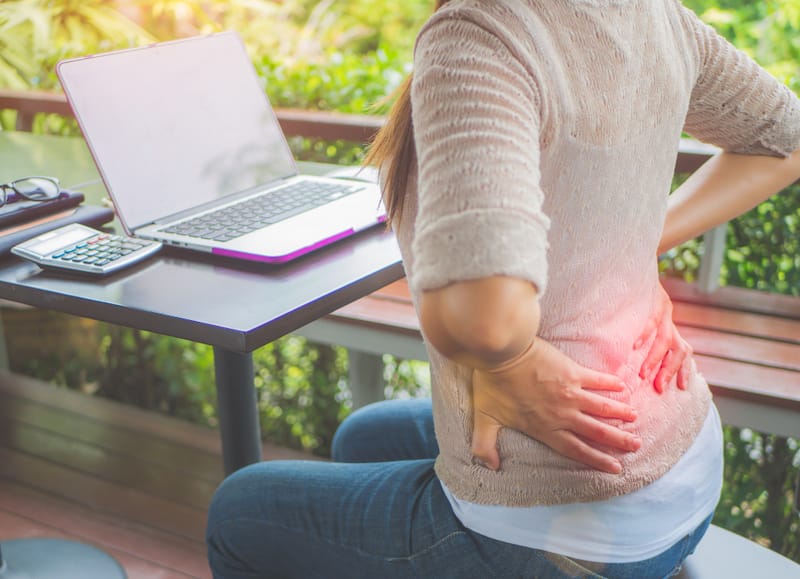An ovarian cyst that doesn’t go away on its own presents with various signs, including a swelling in the lower abdomen or a bloated belly, constantly feeling stuffed, wanting to pee but not being able, experiencing pain during sex, or back or leg pain. One also experiences lower abdomen pain which could feel like something is moving or a baby is kicking in your lower abdomen. It could also signify a ruptured cyst or ovarian torsion, which causes excruciating pain to a person. You might have cysts during your pregnancy, but in the majority of cases, they aren’t harmful. Early pregnancy could also be confused with cysts and vice versa. It’s best to get yourself examined before things become worse for you.
Ovarian cysts are common, and one might not even know they have them or feel any symptoms from them.
Different people experience different symptoms, and pain can vary depending on the person suffering from it.
There are different kinds of cysts one can get, and they’re mostly harmless, but when they’re not, a person usually suffers from various symptoms, including a bloated belly to feeling full all the time.
But can these tissue or fluid-filled sacs also make you feel like a baby is kicking in the abdomen, or is that a sign of other health issues?
Could you also develop an ovarian cyst while pregnant or confuse your pregnancy with an ovarian cyst? Let’s learn the warning signs of an ovarian cyst!
The unbearable pain of the ovarian cyst
Ovarian cysts are common, and not everyone might feel them or even know anything about their existence.
They typically form by ovulation during menstruation but often go away on their own.
But once in a while, when the cysts don’t go away, they can increase in size and causes symptoms to appear.
A person could experience various discomforts and uncomfortable symptoms, especially if the cyst ruptures.
This pain could differ from person to person, and what feels like a sharp pain for someone could feel like a dull pain for the other.
Women could also easily confuse it with period pain and not think much about it.
But one ovarian cyst symptom to distinguish an ovary cyst from other health issues or condition is pelvic pain.
It could also feel like a baby is kicking in your abdomen in the beginning stage or constant pain, but it’s actually the ovarian cyst.
In the later stages, the pain could form in the pelvis’s lower right or left side, just where you have ovaries.
The size of the cysts could also have a different impact on the pain you could feel.
You can differentiate it easily from the period pain if the symptom still lasts and there’s constant pain after you’re done with your menstrual cycle.
Severe pain could also be felt if the cyst becomes more prominent and more mobile and twists in on itself, cutting off its blood supply which can cause this pain, and the person could be suffering from ovarian torsion.
An excruciating pain enough to send you to the hospital right away.
Other symptoms to recognize ovarian cysts
Not just lower abdominal pain, but a person could suffer from different symptoms, which makes it easier to tell if it’s a cyst or not.

Feeling the following symptoms could mean your condition is becoming worse or is already severe enough:
- A bloating belly
- Feeling discomfort during sex
- Experiencing a dull ache in your back
- More painful period than usual
- A weird or stronger period
- Feeling of fullness
- Weight gain or losing it rapidly
- Having tender breasts
- frequent bowel movement
- Going to the washroom but not able to pee properly
Noticing a couple of them together is a warning sign that could immediately take you to the emergency room.
In severe cases, the symptoms will worsen, and a person might suffer from:
- Nausea and vomiting
- Fever
- Unexpected vaginal bleeding
- Dizziness
- Weakness
It’s better to keep a check and watch out for early signs to not let your condition become worse.
Can you have an ovarian cyst while pregnant?

Since ovarian cysts can occur at any time without you knowing about them, trying to see if you could have them while being pregnant is a valid question for safety purposes.
In most cases, the cysts won’t affect your pregnancy for you to be worried about, and they even go away as the pregnancy progresses.
Other cysts can cause issues with the pregnancy and cause pain, but none of them actually causes problems to the baby or with the pregnancy itself.
Corpus luteum cysts, most common during pregnancy, disappear by the second trimester.
Your doctor will keep monitoring your situation. But if you feel like things are becoming worse and you feel more discomfort or unbearable pain, it’s better to seek professional help.
Treating ovarian cysts
If the cyst becomes a problem by causing pain in your abdomen, it can be treated after running several tests.
Usually, it goes away on its own, but severe or long-lasting cysts need other treatments.
You may even be recommended surgery to remove it, including different procedures depending on the size of the cyst.
FAQs
Can a cyst be confused with pregnancy?
Cysts can be mistaken for early pregnancy or even twins. So thorough testing is required to see if it’s actually a fetus or mistaken to be one.
You can even get cysts during early pregnancy, but they usually go away without causing any issues as pregnancy progresses.
Why does it feel like something is moving in my ovaries?
You could be pregnant, or there’re other possible explanations for this movement in your lower abdomen.
It could be due to bodily functions such as digestion, indigestion, or gas. It could also be due to ovulation, a muscle spasm, phantom kick, or allergic reaction.
Pay close attention to the feelings and get tested for pregnancy to clear or confirm doubts.
Can an ovarian cyst cause movement?
In the later stages, when the cyst hasn’t been recognized and has not gone away on its own but grown in size, it can affect your body differently.
It can enlarge and cause the ovary to move, increasing the chance of painful twisting of your ovary.
This is known as ovarian torsion, and the symptoms are quite unbearable.
Can an ovarian cyst cause a big belly?
Swelling is another common symptom of having an ovarian cyst that doesn’t go away on its own.
It could also be mistaken for pregnancy if someone goes through irregular periods.
Most women experience cysts under 10 centimeters, and some go on to become even bigger. It’s one way to know you could have an ovarian cyst.
What are the symptoms of a ruptured ovarian cyst?
– Severe abdominal pain that’s sudden
– Pain accompanied by fever or vomiting
– Feeling cold with clammy skin
– Fast breathing
– Lightheadedness or weakness
Can you physically feel ovarian cysts?
While most of the cysts are minor and go away without the person knowing about them.
There could be some cysts that cause issues such as bloated stomach, swelling, or pain, which can be mistaken for pregnancy symptoms.
You can’t physically feel the presence of the cyst, but sure can see the signs and symptoms and try to think if you could have a cyst.
To summarise
Ovarian cysts could cause various symptoms to appear, and they could be mistaken for other health issues or even for something like a baby kicking or something moving in your lower abdomen.
Though people don’t usually get to a point where they suffer such symptoms as the cysts resolve independently without a trace, some might go through extreme symptoms or signs.
Bloating of the stomach and swelling in the lower abdomen, and feeling a sudden pain is part of having a cyst. The situation could be worsening or is already declined to experience such symptoms.
One could also get cysts while pregnant, but it goes away as the baby grows and doesn’t harm the pregnancy.
You might also confuse early pregnancy with having cysts or vice-versa, where the cyst could be misunderstood for a twin pregnancy.
Thorough testing is required to make sure that doesn’t happen.
In more severe cases, the cyst could also rupture. It could also be a sign of a twisted ovary.
It’s vital to know the warning signs and get yourself examined before your situation worsens. Then you can prevent the cyst from rupturing.


